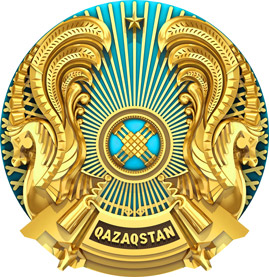State Support
Topics in this Section
Society of Welfare
A new program titled “The Society of Welfare: 10 Goals of the Decade” will guide major aspects of Kazakhstan’s domestic policy through 2030. President Nazarbayev unveiled the program on February 27, 2019 which contains specific goals and projects to become the foundation of the state social policy for the next three years, and influence development and policy-making in the decade ahead.
The main priority of The Society of Welfare is to ensure a high standard of living for citizens and the development of Kazakhstan as a socially oriented state.
The new program will be implemented in these areas:
- Increasing income and supporting low-income segments of the population; Addressing housing issues for citizens with low income and improving education and health care;
- Integrated development of the regions. The state policy concept is the basis for further developing policy in the religious sphere to improve the system of normative legal acts and socio-economic, political and administrative measures and regulate the religious sphere.
- The Kazakh government has paid considerable attention to fighting corruption. Ensuring peace and security, strengthening the political stability of secular society, the social well-being of the citizens and countering religious extremism and terrorism.
- A program to combat corruption with the application of concrete measures to eliminate the causes and conditions of corruption was implemented in 2001. The anti-corruption measures are included in a number of legislative acts regulating public procurement, taxation, customs, licensing and other areas. Kazakhstan has joined the United Nations Convention against Corruption and is an active member of anti-corruption networks.
Given the country’s commitment to fighting corruption, both the Worldwide Governance Indicators and Global Competitiveness Index acknowledged in 2015 that the level of corruption in Kazakhstan had decreased, while the estimates generated by Transparency International indicated there was no difference in the level from 2012-2015. The result for some commentators was somewhat inconsistent with all the anti-corruption activities the authorities conducted.
Through implementing large-scale reforms as part of the 100 Concrete Steps, the approaches and nature of the modern anti-corruption legislation have dramatically changed. Kazakh legislation in the field of preventing corruption has become, in fact, a model for post-Soviet countries, experts claim. Council of the Assembly of People of Kazakhstan (APK), President Nursultan Nazarbayev has approved the Doctrine of National Unity.
Affordable Housing
Kazakhstan’s 7-20-25 affordable housing programme was launched by First President Nursultan Nazarbayev. It provides affordable mortgage lending 25 year terms at an annual interest rate of 7%, provided that the borrower puts down a deposit of at least 20%. The interest rate is significantly lower than the 13-20% rates offered by most banks. It is also considerably lower than the 10% interest rate offered under an existing subsidised mortgage programme within the government’s Nurly Zher (Bright Land) housing strategy. That mortgage programme will be phased out and replaced by 7-20-25.
Nurly Zher program (a state program to provide affordable housing for the population), plans to launch a pilot project providing preferential loans – the 5-10-20 plan.


